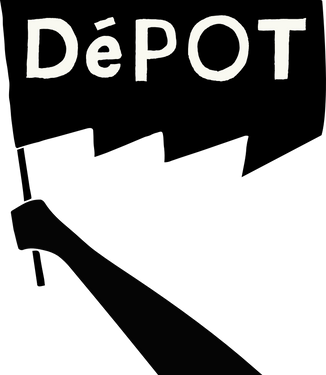
Ivan Anthony Henares is a tourism educator, cultural policy researcher, and advocate for heritage conservation in the Philippines. He is Assistant Professor and Graduate Program Coordinator at the Asian Institute of Tourism of the University of the Philippines, Diliman. At present, he is Secretary General of the ICOMOS International Cultural Tourism Committee (ICTC), Chairperson of the Heritage Conservation Society (HCS), President/National Representative of TICCIH Philippines and, International Correspondent (Philippines) to the Asian Network for Industrial Heritage (ANIH).
Dr. Henares received his PhD in Hospitality and Tourism Management and Graduate Certificate in Environmental Policy from Purdue University (2017-2018 Fulbright-CHED Scholar) and his Bachelor of Arts in Economics, Master of Business Administration and Diploma in Urban and Regional Planning degrees all at the University of the Philippines, Diliman. He is currently enrolled in an Executive Graduate Certificate leading to an MBA in Arts Management with the Global Leaders Program.
His advocacy and research interests are in heritage conservation and tourism policy, and cultural tourism in historic urban landscapes, industrial heritage, cultural landscapes, and indigenous communities in the Philippines. His work is currently focused on Pampanga cultural heritage, especially in the City of San Fernando, Pampanga, and the Sugar Cultural Landscape of Negros Island, where he is working with local stakeholders to protect early 20th century sugar centrals, hacienda houses and plantations, and 19th century sugar mills.
Sessions auxquelles Ivan Anthony Henares participe
Mardi 30 Août, 2022
Vendredi 2 Septembre, 2022
Sessions auxquelles Ivan Anthony Henares assiste
Dimanche 28 Août, 2022
Joignez-vous aux organisateurs du congrès et aux membres du board de TICCIH pour un cocktail de bienvenue et quelques mots festifs de présentation, dans l’ancienne forge de l’École technique de Montréal, fondée en 1909, aujourd’hui intégrée au campus de l’Université du Québec à Montréal.
Lundi 29 Août, 2022
This session presents case studies and policy reviews that contribute to ongoing debate and international dialogue on the role of planning systems and conservation practices in addressing the challenges of citizen engagement—conserving local interests, place attachments alongside physical remnants of industrial heritage. Over the past half century, we have witnessed the development and changing focuses of urban planning and conservation discourses addressing industrial heritage. Relevant p...
This session presents case studies and policy reviews that contribute to ongoing debate and international dialogue on the role of planning systems and conservation practices in addressing the challenges of citizen engagement—conserving local interests, place attachments alongside physical remnants of industrial heritage. Over the past half century, we have witnessed the development and changing focuses of urban planning and conservation discourses addressing industrial heritage. Relevant p...
Patrimoine industriel et photographie entretiennent des relations étroites. La photographie constitue une source de l’archéologie industrielle. Elle permet d’éclairer les liens entre les hommes, leurs outils, leurs machines et leurs lieux de travail. Elle est également, une fois l’activité industrielle terminée, un outil de documentation et d’étude des sites. Mais bien au-delà, saisie par des artistes capables de transcender les représentations communes, conférant aux vestiges industriels ...
Dans une ambiance traditionnelle du temps des sucres québécois, profitez d’une tire d’érable roulée sur neige dans la plus pure tradition, accompagnée d’une musique de circonstance !
Mardi 30 Août, 2022
Community lies at the heart of the processes of industrialization and de-industrialization. From labor to landscapes and from social fabric to ecological communities, scholars regularly examined the industrial community as core to industrial heritage. However, while social scientists have long studied industrial communities, only recently has there been a general consensus of respecting and working with communities themselves. Even so, working “with” a community on industrial heritage has ...
This session focuses on company towns from the perspective of urban planning. “Company towns” are here defined as single-enterprise planned communities, usually centered around a single industry, where a company commissions an urban plan, builds housing for its workers, and sets up recreational, commercial, institutional or community facilities. While these are now endangered by a second wave of deindustrialization, we observe that, aside studies or monographs of individual towns that popu...
Pendant cette pause déjeuner, vous pouvez venir discuter avec l'auteur de son dernier livre.Cette discussion aura lieu à la table DePOT, dans le hall principal de la conférence. DePOT fait référence au groupe "Deindustrialization and the Politics or our Time" ; on y examine les racines historiques et l'expérience vécue de la désindustrialisation ainsi que les réponses politiques à celle-ci. Il s'agit d'un projet de partenariat du CRSH regroupant 33 organisations partenaires et...
Pays continent, dont l’industrialisation s’est amorcée dès le 19e siècle, le Canada a vu à la faveur entre autres de la désindustrialisation et de la requalification urbaine, des pans importants de son patrimoine industriel être altérés ou encore détruits. Cela étant dit, même ainsi, il n’en demeure pas moins que ce pays possède encore aujourd’hui un patrimoine industriel significatif. Or, le Canada étant une confédération, la protection et la sauvegarde de cet héritage industri...
Drawing on case studies from diverse social, cultural, and political contexts the papers in this session discuss the different responses to maintaining and assessing not only the physical sustainability of industrial heritage but also the sustainability of its social values and meaning.
Les efforts visant à préserver le patrimoine industriel s'inscrivent dans un contexte socio-économique et politique précis. Mais qu'est-ce qui est préservé et pour qui ? Et, par ailleurs, quelle est la relation entre les sites du patrimoine industriel et les communautés ouvrières soumises à la désindustrialisation qui les jouxtent souvent ? Steven High examinera les façons dont la préservation du canal de Lachine à Montréal, le principal site du patrimoine i...
Mercredi 31 Août, 2022
Visite de l’exposition permanente : À cœur de jour, grandeurs et misères d’un quartier populaire, qui retrace l’histoire d’un des plus anciens quartiers industriel et ouvrier de Montréal. Découverte de l’ancien bain Généreux, bâtiment rappelant une époque ou la majorité des logements ouvriers n’avaient ni bain ni douche. Présentation de quelques éléments du patrimoine du quartier sur le trajet entre l’...
L’Amérique du Nord compte un grand nombre de canaux historiques, qui ont été fermés à la navigation commerciale en raison notamment de l’évolution des transports (navire au plus fort tonnage, trains, camions, etc.). Si certains canaux historiques ont été comblés, oubliés ou désaffectés, plusieurs ont survécu, en entier ou en partie, devenant des sites patrimoniaux attractifs. Pour certains d’entre eux, le défi consiste à conjuguer la préservation des composantes historiques avec la nécessi...
Le canal de Soulanges est une infrastructure, localisée sur la rive nord du Saint-Laurent, qui a été ouverte au trafic maritime en 1900, succédant alors au « vieux canal » de Beauharnois (établi depuis 1843 sur la rive nord du Saint-Laurent). Le canal de Soulanges a été abandonné en 1959, alors que s’ouvrait l’actuelle Voie maritime du Saint-Laurent qui relie les Grands Lacs à l’Atlantique. La conception du canal de Soulanges est due à l’ingénieur Thomas Monro (1831-1...
Jeudi 1 Septembre, 2022
The proposed session will examine the unfolding relationship between industrial heritage and those left behind in adjoining deindustrialized working-class areas. The four papers seek to understand the socio-economic and political impact of recognizing the industrial past in the present. Two guiding questions will be asked. Can industrial heritage support those ‘left behind’ in deindustrialized areas where nothing, or very little, has filled the economic or cultural vacuum? Has industrial h...
The proposed session will examine the unfolding relationship between industrial heritage and those left behind in adjoining deindustrialized working-class areas. The four papers seek to understand the socio-economic and political impact of recognizing the industrial past in the present. Two guiding questions will be asked. Can industrial heritage support those ‘left behind’ in deindustrialized areas where nothing, or very little, has filled the economic or cultural vacuum? Has industrial h...
The use of industrial heritage is a profoundly important factor in the process of creating a sustainable economic, social, and political future for many communities occupying industrial heritage landscapes. More than ever we recognize the need for such communities to be capable of shaping and expressing their heritage in different forms in the context of current events and issues, and in doing so to inform both contemporary decision-making as well as the way their industrial heritage is re...
Le quartier Centre-Sud est un ancien quartier industriel et ouvrier ; son patrimoine est riche et unique. La visite permettra de découvrir, entre autres, l’usine Macdonald Tobacco et la confiserie Raymond, les anciens logements ouvriers typiques du quartier, et les réutilisations d’anciens bâtiments à des fins culturelles et communautaires. L’activité débutera au métro Frontenac et se terminera par une visite à l’Écomusée du fie...
Vendredi 2 Septembre, 2022
In this meeting, TICCIH representatives from around the world will present work in the field of industrial heritage in their respective countries. The presentations are based on the national reports that TICCIH has gathered for the 2022 World Congress, but may emphasize particular matters. These can range across several fields where industrial heritage plays a role – from academic research and other forms of knowledge production, to heritage management a...
In this meeting, TICCIH representatives from around the world will present work in the field of industrial heritage in their respective countries. The presentations are based on the national reports that TICCIH has gathered for the 2022 World Congress, but may emphasize particular matters. These can range across several fields where industrial heritage plays a role – from academic research and other forms of knowledge production, to heritage management a...
At every World Congress, the international TICCIH community celebrates a General Assembly of its members. The event is open for any registered member of TICCIH, as well as the wider public. According to the current TICCIH Statutes (https://ticcih.org/about/statutes/), however, only Na...
Venez échanger sur les bons moments du congrès et célébrer vos découvertes scientifiques et professionnelles dans une ancienne fabrique de confiture de fruits, l’Usine C, construite en 1913 et transformée à la fin des années 1970 en lieu de création et de diffusion.Découvrez la gastronomie montréalaise grâce à un traiteur d’exception. Apprenez des bribes du patrimoine musical montréalais et de l’histoire du quartier industriel qui lui a prêté vie. Puis entendez et vivez la tradition...








